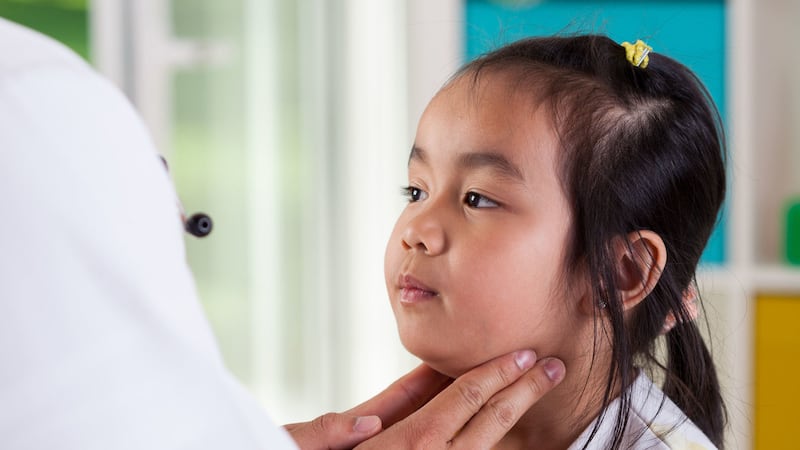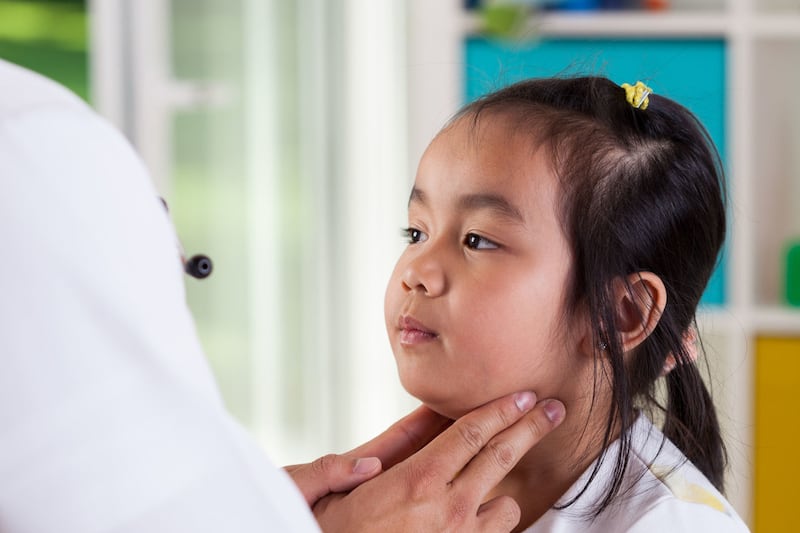MUMPS has been back in the headlines recently, as more than 220 suspected cases were reported at two universities in Nottingham.
The virus is highly contagious, affecting the salivary glands and causing puffy cheeks and a swollen jaw, which can make it difficult to eat. Mumps most commonly affects children, but teenagers and adults who haven't been vaccinated can be at risk too. In light of the recent outbreak, UK students are being urged to ensure they're protected; those who haven't had two doses of the MMR vaccine are particularly vulnerable.
"Mumps is a contagious illness which causes the parotid glands – located on either side of the mouth and in front of both ears – to become swollen. While it's much less common for people to contract mumps now because of the measles, mumps and rubella (MMR) vaccination that was introduced in 1988, there are still occasional outbreaks in those who have not been immunised," says Bupa Health Clinics' expert Dr Arun Thiyagarajan.
"The MMR vaccine triggers the immune system to produce antibodies against measles, mumps and rubella so that if someone comes into contact with one of the diseases, the immune system should recognise it and produce the antibodies needed to fight it."
How do you catch mumps?
"Mumps can be spread in the same way we catch colds, as it's an airborne virus," Dr Thiyagarajan says. "An infected person coughing or sneezing and releasing tiny droplets of saliva, which are inhaled by someone else, spreads the illness. You're infectious from two days before the onset of mumps symptoms, to nine days afterwards. Even if you don't appear to be showing any symptoms, you can still be infectious, which is why mumps can spread so easily."
Good hand hygiene – regularly washing your hands with soap and water – is always a good idea, and avoid sharing drinks, food and utensils.
What are the symptoms?
Headaches, a high temperature, loss of appetite, fatigue, muscle and joint aches. A couple of days after initial symptoms surface, you may develop earache and it may hurt to chew and swallow. Then there's the telltale mumps swelling, and people can feel really quite unwell.
"In adults, the symptoms can occasionally be a little worse and may develop into swollen testicles or ovaries. Swollen ovaries can cause pain in a woman's [abdomen] and a swollen testicle may cause some discomfort too, but this varies case-by-case," Dr Thiyagarajan adds.
It's always advisable to seek medical advice if you have such symptoms, as it may be necessary to rule out any other possible causes too.
Can mumps be dangerous?
It might make you quite poorly, but the NHS says that mumps usually passes without causing serious damage to a person's health. However, in more rare cases, complications can develop, so it's important to be aware.
"Reports of serious complications of mumps are rare, but include viral meningitis and pancreatitis, of which the main symptom is pain in centre of your tummy," says Dr Thiyagarajan, who urges that you should consult your doctor immediately if you experience symptoms of this.
For children who haven't been vaccinated and show symptoms of mumps, it's vital they visit a doctor.
"Equally, pregnant women that suspect they may have the illness should seek medical advice as it can increase the chances of miscarriage, particularly in the first three months of pregnancy."
Who is most at risk?
Basically, anyone who hasn't been properly vaccinated. "The MMR vaccine was introduced in 1988, meaning that cases of mumps may occur in adults who haven't received the vaccine during their childhood immunisation schedule," says Dr Thiyagarajan.
"Today, the MMR vaccine is given on the NHS as a single injection to babies as part of their routine vaccination schedule, usually within a month of their first birthday. They then have a second injection of the vaccine before starting school, usually around four months after their third birthday.
"As the recent news has shown, outbreaks can still happen if people haven't been vaccinated, so it's important that you and your children are covered."




